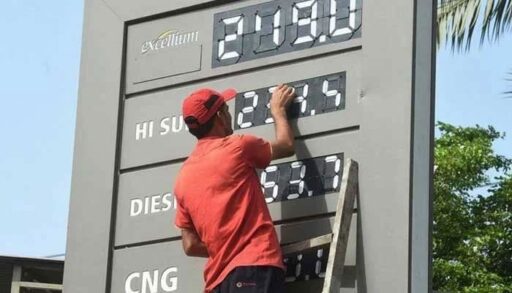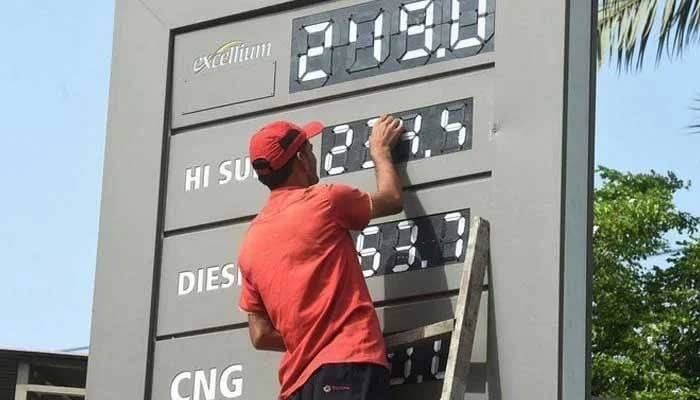New Petrol Price in Pakistan
In a recent announcement, Prime Minister Shehbaz Sharif declared a modest reduction in the petrol price for Pakistan, bringing it down from Rs272.77 to Rs269.43 per liter. This marginal decrease of Rs3.34 per liter, on the surface, may appear to be in small amounts; however, in the context of Pakistan’s economy, each penny counts essentially. The fluctuating petrol prices significantly affect different areas, including transportation, manufacturing, and daily consumer goods, influencing the overall cost of living for the populace.
The petrol price in pakistan adjustments are often met with mixed reactions from the public. While some may perceive it as a beneficial relief, others could see the change pessimistically because of deeper, hidden economic challenges. This blog aims to analyze these new price changes and their more extensive implications on the Pakistani economy. Moreover, we will dive into the price changes for other fundamental fuels, for example, kerosene and light diesel oil, and provide you a comprehensive research on the fuel market and its elements. Understanding the complexities of petrol price changes in Pakistan requires a necessitates at both domestic policies and international market trends. These elements frequently interplay to impact the final consumer price, reflecting worldwide raw petrol prices, currency exchange rates, and internal economic policies. As we proceed, this analysis will spotlight the critical elements driving these changes and offer insights into potential future trends.
Current Petrol Prices and Their Impact
Recently, there has been a minor reduction in the petrol price in Pakistan, moving from RS272.77 per liter to RS269.43 per liter. While this decrease might seem immaterial initially, it conveys impressive importance inside the more extensive context of Pakistan’s economy and the regular routines of its residents. The petrol price in Pakistan plays a critical part in something other than being a number at the pump; it affects numerous sectors ranging from transportation to the cost of goods and services.
Petrol costs directly influence the transportation sector, as fuel is a major input cost for public transport systems, freight trucks, and personal vehicles. A slight reduction in the petrol price in Pakistan can lead to lower operating costs for transportation suppliers, which, in theory, could mean decreased admissions for workers and lower transportation costs for organizations. This, thus, may bring about additional reasonable labor and products for everyone, invigorating both consumer spending and the more extensive economy. The effect of petrol prices on the economy reaches out past transportation. Ventures that depend vigorously on fuel, like assembling and agribusiness, additionally stand to profit from even minor price decreases. These ventures are probably going to experience lower creation costs, which could lead to increased profitability and potentially more competitive pricing in the market. Additionally, households notice these changes as lower fuel costs can mean more disposable income, thus improving overall economic well-being.
However, the petrol price in Pakistan is not exclusively determined by domestic factors. It is heavily influenced by global forces, especially the fluctuating prices of unrefined petroleum. Fluctuation in international oil markets, frequently determined by international occasions, organic market elements, and economic policies, resonates all through Pakistan’s economy. Consistent observation and strategic management of these factors are essential to mitigate their impacts on petrol prices within Pakistan and to ensure economic stability.
Kerosene and Diesel Oil New Price
In recent developments, the Pakistani government has enacted reductions in the prices of kerosene oil and light diesel oil. Specifically, the expense of kerosene oil has been brought down by RS6.32, carrying it to another price of RS177.39 per liter. Also, the price of light diesel oil has been scaled down by RS5.72, making it now accessible at RS160.53 per liter. These adjustments form part of a broader strategy to regulate the petrol price in Pakistan.
Kerosene oil plays a critical role in various aspects of Pakistan’s socio-economic landscape. Crucially, it serves as an essential source of fuel for heating in both urban and rural families, especially in regions with restricted or deficient admittance to natural gas. The decrease in kerosene prices aims to ease the monetary weight on families dependent on kerosene for their day-to-day needs. This action can likewise add to further developed indoor air quality, as a consistent and affordable supply of kerosene encourages its use over less efficient and potentially harmful alternatives like biomass or wood.
On the other hand, light diesel oil is predominantly utilized in the agricultural sector, driving apparatus like work vehicles and other fundamental cultivating hardware. The new price cut in light diesel oil is expected to decrease operational expenses for farmers, possibly prompting lower food creation costs and, thus, more reasonable prices for consumers. This decrease could improve farming efficiency and strength, which is paramount for Pakistan’s predominantly agrarian economy.
Global Market Dynamics and Their Effects on Local Prices
The international market for fuel, encompassing petrol, diesel, and kerosene, is subject to significant fluctuations driven by various factors. Recent statistics indicate that global crude oil prices have seen a considerable rise, impacted overwhelmingly by economic recovery post-pandemic, a flood popular, and choices by OPEC and non-OPEC individuals concerning oil creation levels. As of the most recent information, Brent Crude prices have oscillated between the range of $70 and $85 per barrel over the last six months.
Global economic conditions play a crucial role in shaping these prices. For instance, inflation rates, currency strength, and economic policies in significant economies like the US and China have far-reaching influences that impact petrol prices around the world. Furthermore, unanticipated international occasions, for example, conflicts in key oil-producing districts or significant oil exporters, can trigger abrupt price changes. For instance, recent tensions in the Middle East have led to concerns over oil supply disruptions, subsequently causing price hikes.
Conclusion
Looking ahead, industry analysts predict that petrol prices may continue to experience volatility. With ongoing efforts to balance oil production and demand, combined with international unpredictability, the future price landscape stays questionable. Pakistani consumers and stakeholders should expect possible changes and get ready for shifting fuel costs before very long. It highlights the basic idea of understanding how worldwide market changes straightforwardly impact the petrol price in Pakistan which will provide a comprehensive view of its economic implications.
Read More interesting Topics With : YOURS
- Roblox Unblocked 66: Unlocking Endless Gaming Possibilities
- CoolMathGames Unblocked: Your Ultimate Destination for Fun and Learning
- Derrick Henry Cowboys: A Name that resonate in NFL
- The Alexee Trevizo Case: Latest Updates, Verdict Insights, and Ongoing Legal Battles in 2024
- Tyson vs Paul: A Clash of Generations in the Boxing Ring





